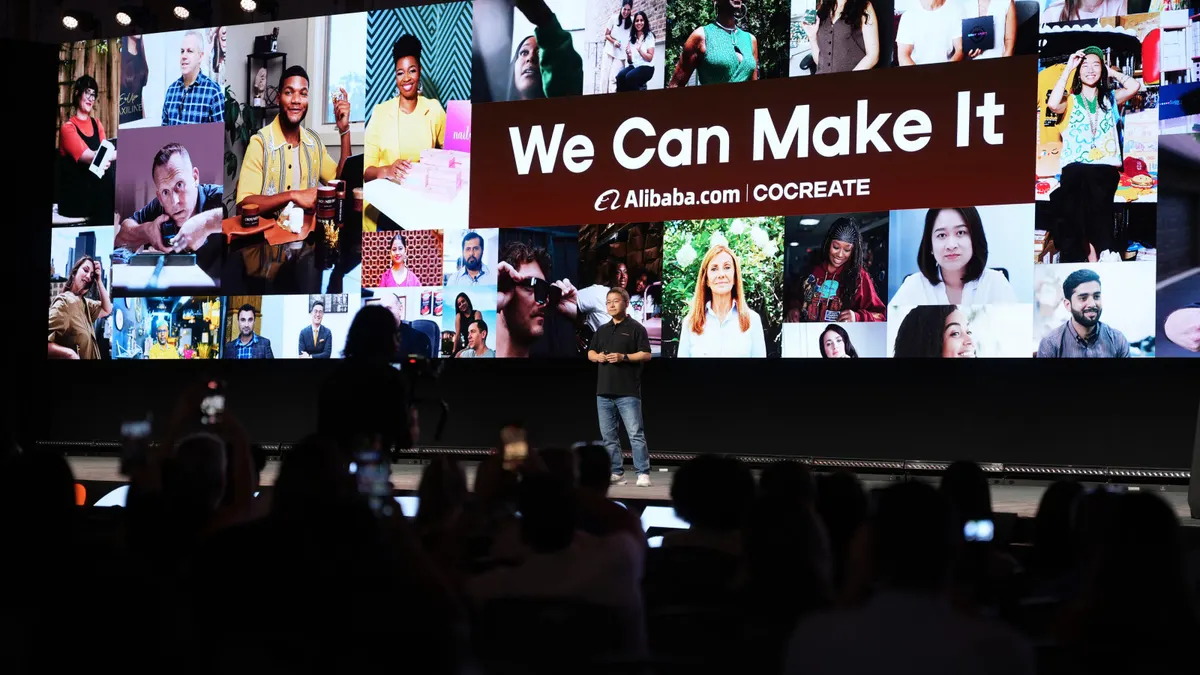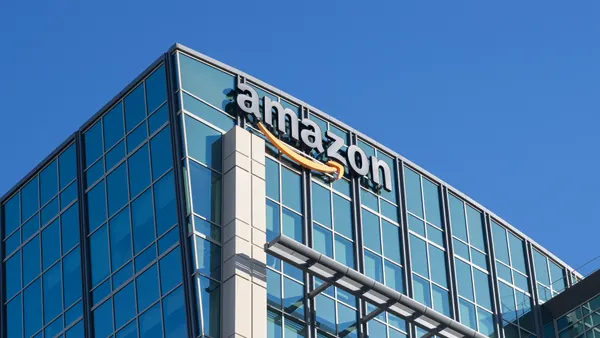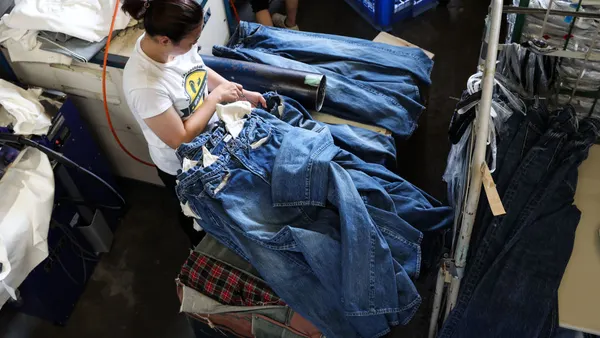Owning a small business has never been easy, but in today’s climate of shifting trade policies, evolving buyer expectations and rapid technological advancements, it can feel like global commerce is becoming the exclusive domain of large enterprises. Yet the opposite is increasingly true.
At the third annual CoCreate summit, hosted by Alibaba.com in Las Vegas on September 4–5, 2025, more than 3,500 entrepreneurs, suppliers, and supply chain leaders from around the world gathered to share insights, solutions, and success stories. The event offered a compelling snapshot of how small and medium-sized enterprises (SMEs) are not just surviving but thriving in today’s volatile trade environment.
Here are some of the biggest takeaways from this year’s event for SMEs looking to build resilience, efficiency and reach through global trade.
The Rise of the Micro-Multinational: SMEs Scaling with AI
As Alibaba.com President Kuo Zhang noted in his keynote address to SMEs, “The businesses thriving in today's environment, are those that combine the agility of SMEs with the technological capabilities that were once the exclusive domain of large multinationals."
That sentiment defined the tone of the summit. AI has become a powerful equalizer, enabling SMEs to operate like lean, global enterprises. Named, “micro-nationals,” these businesses are using AI to accelerate market entry, diversify suppliers and streamline cross-border operations.
According to Alibaba.com research, 63% of SMEs worldwide now actively seek AI to facilitate cross border trade, a clear sign that digital capability is no longer optional, but essential.
Solving Persistent Trade Challenges through a Dedicated AI Agent
Global sourcing has long presented a consistent set of challenges: language barriers, limited market intelligence, and difficulty in verifying overseas suppliers. The event highlighted how AI-powered tools are now solving these at scale, including:
1. Product development and customization based on emerging global trends
2. Supplier vetting and comparison to ensure quality and reliability
3. Risk assessment in fluctuating trade environments
4. Multilingual communication tools to overcome language barriers
Importantly, these technologies don’t require wholesale transformation. Many SMEs are achieving measurable supply chain improvements by selectively adopting digital tools where they can make the most immediate impact.
One of these digital tools is Accio. Trained on 1 billion product listings and 50 million supplier profiles, Accio Agent merges deep industry insights with strategic reasoning to help automate as much as 70 percent of small businesses’ manual workflows, according to internal data at Alibaba. This includes tasks like product ideation, prototyping, compliance protocols, and supplier sourcing.
With its ability to leverage advanced language models to understand long natural-language queries and image-based searches simultaneously, Accio Agent doesn’t require users to learn how to write complex AI prompts. Whether its text or images – which can be photos, PDFs, or even drawings – Accio can take an idea and build a comprehensive business plan from the user’s inputs. It can also evaluate customer feedback and supplier performance, generating full reports on each metric.
Case Studies: Global SMEs Rewriting the Supply Chain Playbook
One of the most valuable aspects of CoCreate was the wide range of SME case studies, demonstrating how businesses across different regions and industries are successfully navigating global trade through digital innovation.
- United States – GIP Industries. The Nike shoes and G West branded apparel distributor transitioned from traditional trade show marketing to a fully digital procurement model on Alibaba.com. This shift allowed buyers to browse catalogs, check inventory, and place orders directly, significantly streamlining the procurement process. While specific percentage improvements weren't disclosed, the company emphasized measurable improvements in inquiry response times and transaction efficiency.
- Italy – Hound (Pet Food Startup) Within a year of launching on Alibaba.com, Hound successfully entered the U.S. market through its Animal House brand. Using the platform’s data analytics, the company gained valuable insights into buyer behavior, allowing for real-time adjustments to product offerings and marketing strategies. The founder noted that this data-driven approach has replaced what was traditionally a lengthy and costly process of international distributor searches.
- Taiwan – Chang Chuan Enterprise A 15-year veteran on Alibaba.com, this wheel caster manufacturer exemplifies digital longevity. Initially hesitant about fulfilling small custom orders, the company found these to be gateways to long-term partnerships and international expansion. Their story illustrates the long tail of digital engagement.
- Saudi Arabia – Saadeddine Confectionery. A legacy brand with over 120 regional stores, Saadeddine recently digitized its product catalog and began using AI for global demand forecasting. The result: a new wave of international interest and the ability to scale selectively based on real-time market data.
- Pakistan – Pace Sports. Based in Sialkot, Pace Sports specializes in custom sportswear and sublimated team uniforms. Representing Pakistani suppliers at CoCreate 2025, founder Mr. Tehseen Abbas—an Alibaba.com Verified Seller with over a decade of experience—generates 80% of business from the U.S. Leveraging tools like Verified Membership and Trade Assurance, the company boosts buyer trust and efficiently connects with global customers.
- Vietnam – HMG. Vietnam’s 3D Pop‑Up Card Specialist
HMG creates handcrafted 3D pop-up greeting cards, with the U.S. as its top market. A 12-year Gold Supplier on Alibaba.com, the company blends creative design with the craftsmanship of skilled Vietnamese women. Through listing optimization and Trade Assurance, HMG builds trust with global buyers – delivering not just cards, but meaningful, cross-cultural connections.
Each case demonstrates a shared reality – digital tools are no longer optional for SMEs seeking to compete internationally. They are fundamental to survival and growth.
Expanding Horizons: CoCreate Goes to Europe
Building on the momentum from Las Vegas, Alibaba.com announced it will bring CoCreate to London in November 2025, signaling growing engagement with European suppliers and buyers.
The European summit will maintain the practical, solutions-oriented approach that made the Las Vegas event successful, while tailoring content to address specific regional challenges and opportunities.
Of particular focus will be helping European SMEs navigate the complexities of trading across multiple jurisdictions while maintaining compliance with varying regulations.
Digital Resilience Is the New Competitive Advantage
The 2025 CoCreate summit sent a clear message: the global trade landscape is flattening, and technology is the great enabler. SMEs can now build robust, resilient, and globally diversified supply chains without the overhead of multinational corporations.
What stood out most from the event wasn’t just the promise of new tools, it was the proof. Real businesses in real markets, seeing real results.
For supply chain professionals, this marks a shift in the playbook. The focus is no longer on scale alone, but on agility, data-driven decision-making, and strategic adoption of technology. Whether it’s breaking into new markets, stabilizing procurement channels, or improving operational efficiency, SMEs today are showing that resilience and innovation are well within reach.











